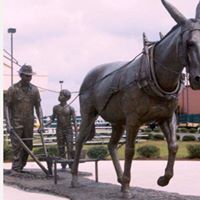What classic novel's subtitle is "The Parish Boy's Progress"?
"Oliver Twist", or "The Parish Boy's Progress", is the second novel by English author Charles Dickens and was first published as a serial 1837–39. The story is of the orphan Oliver Twist, who is born in a workhouse and is then sold into apprenticeship with an undertaker. He escapes from there and travels to London, where he meets the Artful Dodger, a member of a gang of juvenile pickpockets led by the elderly criminal, Fagin.
Oliver, an innocent child, is trapped in a world where his only options seem to be the workhouse, a life of crime symbolized by Fagin's gang, a prison, or an early grave. From this unpromising industrial/institutional setting, however, a fairy tale also emerges. In the midst of corruption and degradation, the essentially passive Oliver remains pure-hearted; he steers away from evil when those around him give in to it, and in proper fairy-tale fashion, he eventually receives his reward – leaving for a peaceful life in the country, surrounded by kind friends. On the way to this happy ending, Dickens explores the kind of life an outcast, orphan boy could expect to lead in 1830's London.
The alternate title, "The Parish Boy's Progress", alludes to Bunyan's "The Pilgrim's Progress", as well as the 18th-century caricature series by William Hogarth, "A Rake's Progress" and "A Harlot's Progress".
More Info:
en.m.wikipedia.org

